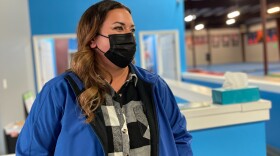Blake Farmer
-
More and more hospitals are contracting with private companies to run their emergency departments. To save money, many are increasingly relying on nurses and physician assistants instead of doctors.
-
Increasingly, private equity firms shape staffing decisions at hospital emergency rooms, research shows. One apparent effect: Hiring fewer doctors and more health care practitioners who earn far less.
-
Clinics that care for long COVID patients are wrestling with how to handle a condition that is still poorly understood and has no widely accepted treatments.
-
Some rural hospitals are in such bad shape, they're selling for next to nothing. One company is snapping several distressed or closed hospitals in rural Tennessee, hoping to turn a profit.
-
Festival promoters are allowing lifesaving medication as fentanyl deaths surge, but volunteers are often left to distribute it, and more controversial forms of harm reduction aren't openly allowed.
-
Reproductive rights proponents worry about the risk of counseling those who seek medication abortions, though they've published online support techniques and guides for safe use of the drugs.
-
For COVID patients, ECMO is a last-ditch respiratory treatment in which only about half survive. Yet a new small study suggests many lives would still have been saved if there had been more machines.
-
State medical boards have an obligation to investigate complaints about doctors, such as those who spread COVIC misinformation. But in Tennessee and other states, lawmakers are saying 'not so fast'
-
The pandemic pay for traveling nurses was too good to pass up for many RNs. But some are ready to settle down at home, and they're finding full-time jobs aren't keeping up with salary increases.
-
Black patients and their families are less likely to sign up for end-of-life comfort care. To reach them, investors are starting hospice agencies run by people who look like the patients they serve.









